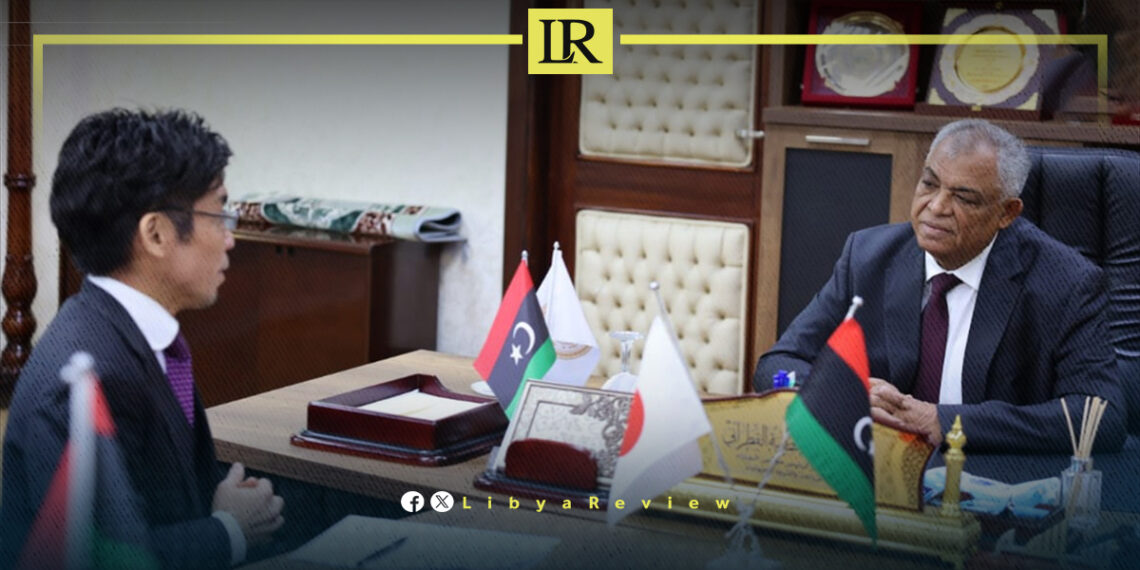On Monday, Hussein Al-Qatrani, Libya’s Deputy Prime Minister and acting Minister of Agriculture and Livestock of the Government of National Unity, held discussions with Masaki Amadera, Japan’s Acting Ambassador to Libya.
The meeting explored opportunities for technology transfer, capacity building, and foreign investment in Libya’s agricultural sector.
According to a statement by the Libyan government’s platform “Hakomitna,” the talks emphasized Libya’s efforts to attract foreign investors by showcasing agricultural opportunities.
The discussions also highlighted Japan’s potential role in boosting Libyan agricultural efficiency and sustainability by leveraging its cutting-edge technology and expertise.
This latest engagement builds upon a series of diplomatic exchanges between Libya and Japan aimed at fostering collaboration across critical sectors. In November, Libyan interim Prime Minister of the Government National Unity (GNU) Abdul Hamid Dbaiba met with Japan’s Ambassador Shimura Izuru to discuss cooperation in training and capacity building.
They also emphasized the need for Japanese businesses to resume their operations in Libya, particularly in the oil sector, a cornerstone of the Libyan economy.
The return of Japanese companies to Libya is seen as vital for advancing reconstruction and supporting the country’s post-conflict recovery. During the meeting, both sides acknowledged the significance of economic partnerships in driving development and ensuring long-term stability.
Libya’s agricultural sector holds enormous potential, thanks to its vast arable lands and favorable climate. However, the country faces challenges in modernizing its farming and livestock industries. By collaborating with Japan, known for its technological advancements in precision farming and sustainable agriculture, Libya aims to improve productivity and address food security challenges. Japan’s expertise in environmental management and resource efficiency offers additional value for Libya’s agricultural transformation.
This partnership aligns with Libya’s broader goals of diversifying its economy and reducing reliance on oil. By fostering international collaborations like these, Libya seeks to unlock new avenues for growth and create a more sustainable and inclusive economy.


